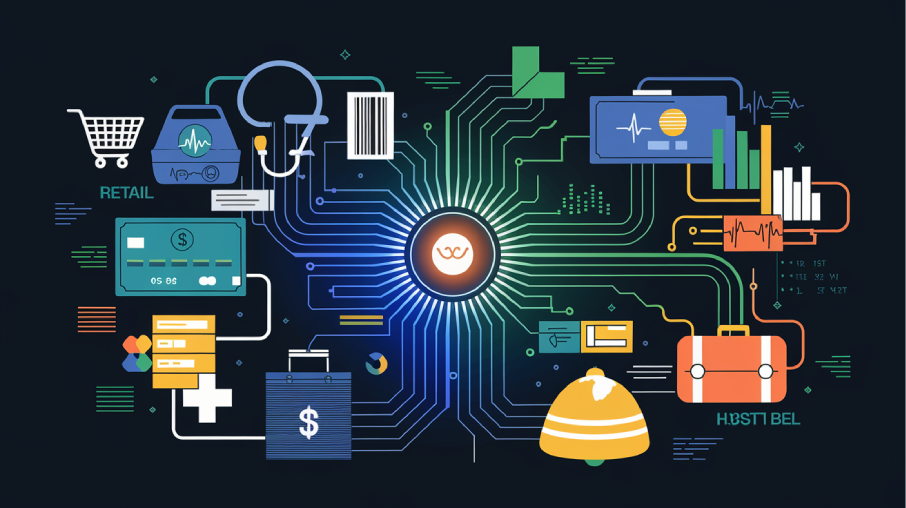
In the modern competitive marketplace, customer loyalty programs stand as pivotal elements in ensuring customer retention and enhancing overall business performance. The application of Business Intelligence (BI) within these programs varies significantly across industries such as retail, airlines, and hospitality. Each sector leverages Business intelligence uniquely to cater to its specific needs, drawing on the rich insights BI tools provide to tailor experiences and rewards, optimize customer engagement strategies, and ultimately drive loyalty.
Retail Industry
In the retail sector, BI is primarily used to understand purchasing behaviors and to segment customers based on their buying patterns. Retailers rely on BI to track a wide array of metrics, including purchase frequency, basket size, and product preferences. This data allows for the creation of personalized marketing campaigns aimed at increasing customer lifetime value. For example, by analyzing seasonal purchase trends, retailers can tailor promotions and offers to coincide with expected spikes in buying activity.
Moreover, BI tools help retailers manage and optimize rewards programs by identifying which incentives lead to the highest engagement and repeat purchases. They can dynamically adjust loyalty rewards to cater to consumer preferences, which are continually assessed through ongoing data analysis.
Airline Industry
For airlines, loyalty programs are critical, often comprising tiered memberships that offer progressively better rewards and perks. BI in the airline industry focuses on analyzing customer travel patterns, booking frequencies, and service preferences. This information is crucial for understanding the needs of different traveler segments—from leisure travelers to frequent business flyers.
Airlines use BI to tailor communications and promotions, such as offering upgrades or discounted flights, based on the likelihood of customer acceptance. This targeted approach helps improve customer satisfaction and retention rates. BI also plays a crucial role in operational adjustments, where customer feedback and satisfaction metrics lead to service enhancements or additional offers like extra legroom or priority boarding.
Hospitality Industry
In hospitality, loyalty programs are designed to enhance guest experiences and encourage repeat visits. Hotels and resorts use BI to gather and analyze data on guest preferences, from room choices to dining habits. This insight allows for personalized guest experiences, a key differentiator in the hospitality industry.
BI tools help in recognizing high-value customers and ensuring they receive premium service every time they visit, potentially including room upgrades, complimentary services, and personalized greetings. Furthermore, predictive analytics enable hospitality businesses to anticipate when guests are likely to return and what services they might require during their stay.
Cross-Industry Comparisons
Data Utilization: Retailers focus extensively on transactional data; airlines on travel-specific data like routes and booking classes; while hospitality leans on service preference data to enhance personalization.
Customer Engagement: In retail, BI is often used to push products to specific segments. In contrast, airlines and hospitality use BI to enhance service offerings and personalize the travel or stay experience, respectively.
Reward Structures: Retail loyalty rewards are often transaction-based—direct discounts or vouchers. Airlines offer more experiential rewards, like lounge access or priority services. Hospitality tends to mix both, offering room upgrades (experiential) and discounts (transactional).
Technology Adoption: While all sectors are increasingly data-driven, the scale and specifics of BI tool integration can vary. Airlines and hospitality often invest in more complex BI systems to manage the vast data from diverse touchpoints across the travel experience. Retail, while also complex, frequently focuses more on point-of-sale data and customer demographic analytics.
Conclusion
The implementation of Business intelligence in loyalty programs across retail, airlines, and hospitality industries showcases the versatility and necessity of data-driven strategies in modern business operations. Each industry tailors its use of BI tools to meet specific challenges and objectives, underscoring the importance of BI in building successful, sustainable customer relationships and loyalty strategies. The strategic use of BI not only enhances customer understanding and engagement but also provides a competitive edge crucial for business success.
of our story
hr@annexcloud.com















